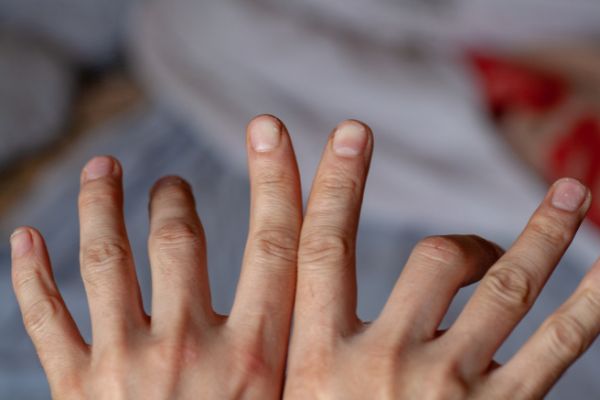Your hands and wrists are incredibly important to your ability to work and play. Imagine trying to cook a meal, play catch with your kids, or even type up documents at work without the full dexterity and strength of your hands. It’s not a pretty picture, and anyone who’s ever experienced hand or wrist pain – even temporarily – can tell you how difficult it is to grip a soda can, a wrench, or even a pen with that feeling of pins and needles running through your palm and fingers. If this all hits home for you, hopefully this blog gives you a better idea when to see a hand doctor for that hand or wrist pain that refuses to go away.
It can be difficult to tell when to see a hand doctor or hand surgeon is necessary. We know questions such as these can play a role in how quickly someone decides to seek help:
- Will this pain eventually go away?
- Can I heal this on my own?
- Do I really want to know what’s wrong?
We’ve seen many cases where a patient pinched a nerve in their hand, for example, and while it did heal on its own over a period of several weeks, the pinched nerve was indicative of a larger, more chronic problem. In general, if there are questions and a decreased ability to live your normal day-to-day life, we recommend calling a top hand doctor for an appointment immediately. Michiganders, here are some specific cases that absolutely warrant a call to your local Michigan hand specialist:
Prolonged Tingling or Numbness
Tingling and numbness – the feeling like your hand has gone “to sleep” – may be early symptoms of carpal tunnel syndrome. If you hold your hands in a position that’s not ergonomically correct for long periods of time, you can compress the carpal tunnel, through which the main nerves to your hand travel. If those nerves are pinched, serious and permanent damage can be done.
If you notice your hands falling asleep regularly, or you get that pins and needles feeling for longer than a few moments, it’s time to call a hand doctor such as Dr. Avery Arora. Getting a proper diagnosis by a hand specialist now could save you a lot of pain and potentially a surgery that could have been avoided.
If you develop carpal tunnel and other repetitive motion injuries in the hands and wrists early, you can usually treat them with over-the-counter anti-inflammatory drugs (aspirin, etc.), an ergonomic brace or stabilizer, and/or physical hand therapy.
Joint Pain in Your Hand or Wrist
Having trouble bending or flexing your fingers or your wrist? It’s time to call a hand doctor immediately. This may be a sign of either rheumatic arthritis or osteoarthritis, either of which can be treated, but, again, treatment is much more effective and much less invasive if you catch it early. For example, if you wait until you have lost function in your hands, you may never recover that function or you may need surgery to regain it.

Swelling in Your Hand or Wrist
Swelling in the wrist joints or in the joints of your fingers could be due to arthritis, but it could also be a symptom of a repetitive motion injury. Repeating the same motions can put increased strain and stress on the muscles and ligaments of your hands and wrists, which can then become inflamed, causing swelling, tenderness, pain, and/or numbness. Talk to your hand doctor right away to treat swelling in your hands, wrists, and/or your elbows before it becomes a bigger problem than it already is.
If you’ve been putting off speaking with a hand doctor about a hand, wrist, or elbow issue that has been bothering you, it may be time to get in touch with top MI hand surgeon Dr. Avery Arora. You can schedule an appointment at one of his four offices in West Bloomfield, Warren, Macomb, or Howell, Michigan.















